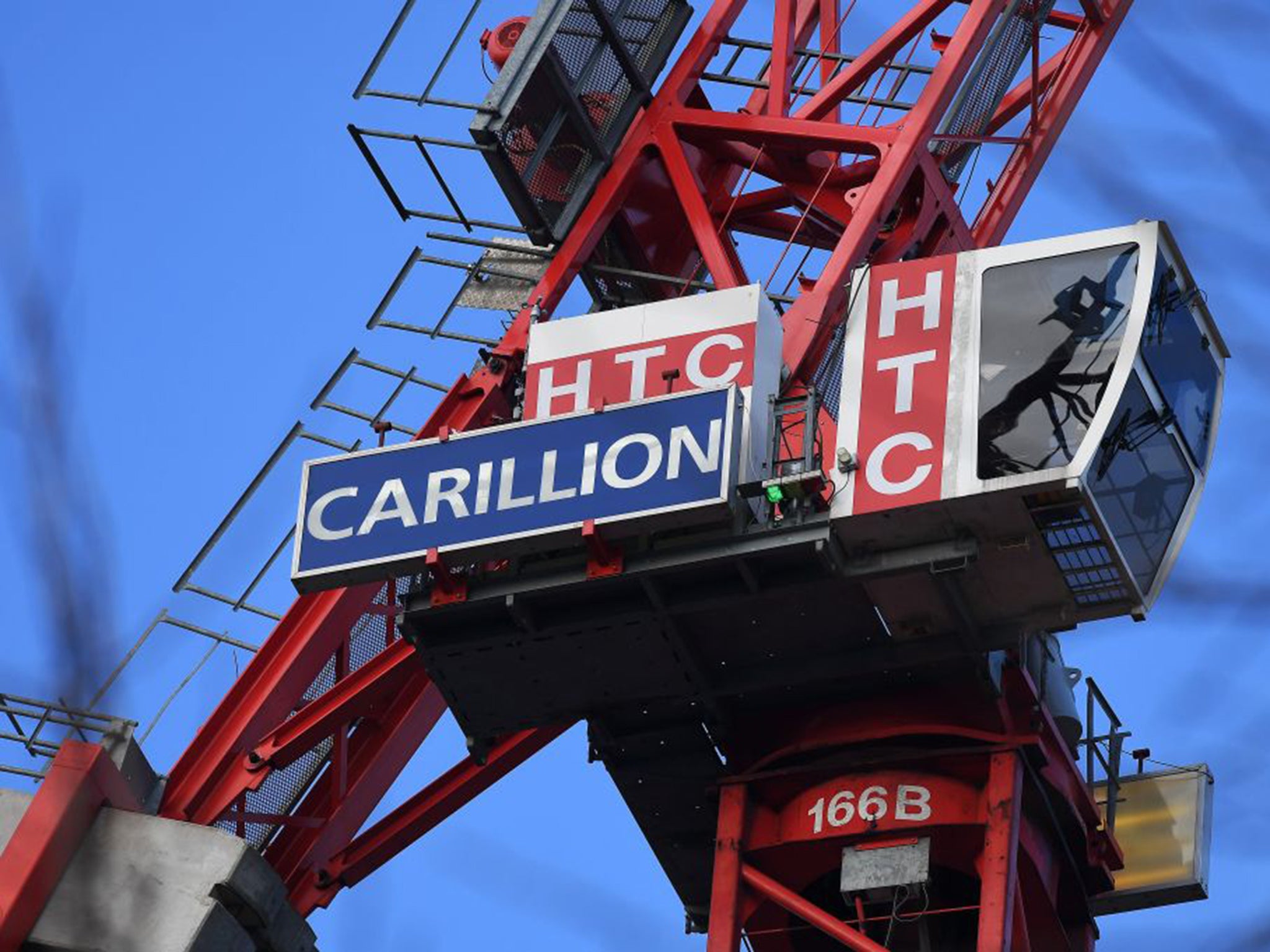Carillion collapse: Why we shouldn't blame it on the banks
RBS represents a very easy target, but Carillion executives have much to answer for

Carillion’s problems? It was the banks, it was the banks, it was the banks.
They were mean to us. They didn’t support us when we asked for help. You want to know why everything went wrong? Blame them! They stopped us from saving the company.
At least that’s what interim CEO Keith Cochrane wants you believe. In a statement submitted to the High Court he argued that RBS took ‘unilateral action’ that undermined bosses’ ability to conserve cash and keep the show on the road while rescue efforts were ongoing.
If you’ve read some of the reports you may have come away with the impression that the action he refers to involved a refusal to lend at the death.
Actually it concerned payment processing. Carillon had a facility whereby RBS would make advanced payments for the company, collecting the cash from its account three days later.
With the business teetering on the brink, the bank was understandably worried that Carillon wasn't good for the money and so decided to tighten the terms.
As Mr Cochrane pointed out in his statement, this would indeed have had the effect of depriving the company of some of its short term liquidity, in other words, of some of the cash it could call to hand.
With his statement he is saying that this undermined efforts to stabilise the ship, with the implication that Carillion it might even be trading today were it not for the decision.
Here’s the thing: RBS represents a very easy target here. It’s a bank. It’s backed by the state. It has quite rightly faced a great deal of criticism over its past treatment of struggling businesses which has been scandalous.
But consider: This is a company that is expected to pay back something like 1p on the pound to creditors after its liquidation and that had just £29m left in the bank at the end. That might sound like a lot, but for a company of its size it is pin money. For a bit of context, my understanding is that a payment of £27m went through a couple of days before the RBS decision. Payments of such a size would not have been uncommon.
My point is, it doesn’t look like there was much of a business to be rescued.
The company’s lending banks, Barclays, HSBC, Santander, Lloyds, in addition to RBS, had thrown cash at it towards the end in the hope that it could trade through its difficulties, as other Carillions have in the past when they’ve hit similar problems.
Banks don’t like incurring write downs and if there is a realistic chance that they can avoid them by lending more money, then they’ll do that.
Carillion has, I understand, already been the cause of a very big one at RBS. It was the name behind the £150m write down that disfigured RBS’s third quarter results. There may be more to come. The company’s syndicate made £140m more available in October, of which £100m had been drawn upon at the time of the collapse.
So this is not a business that suffered through its lenders being mean. In fact, a lot of former RBS small business clients might be inclined to look aghast at some of those figures. They will likely feel that had they been granted similar proportionate largesse then they’d still be trading today.
There is a case to be made that far from criticising RBS for a lack of support we should actually take it to task for being too generous and for pouring good money after bad.
But Mr Cochrane, and Carillon executives have, at this point, a very real interest in painting a very different picture, and in using decisions, like the one RBS made over its payment facility, as a means of deflecting attention from their own failings.
They need to pass the buck, and they want to get their story out into the media.
It looks like that is what is happening here.
The banks shouldn’t escape criticism over Carillion. They backed a deeply flawed model, and lent too generously to it.
But, if we’re assigning blame for what went wrong they’re way down the list and they will pay a price for their mistakes by incurring substantial losses.
At the front of the queue should be Carillon's executives, for allowing the business to get into such a dire state in the first place. By the way, several of them are in receipt of generous payoffs while workers, many of whom will today be losing their jobs, have to make do with small cheques from the Insolvency Services to tide them over while their unemployment claims are processed.
Then there are the ministers and civil servants who handed a vast array of vital services to Carillion, including after its problems emerged.
Want more? How about the accountancy firms who advised on the scandalous private finance initiative (PFI) contracts Carillon was such a big player in.
The banks? They are sinners too, but they are as much sinned against in this case.
Subscribe to Independent Premium to bookmark this article
Want to bookmark your favourite articles and stories to read or reference later? Start your Independent Premium subscription today.

Join our commenting forum
Join thought-provoking conversations, follow other Independent readers and see their replies